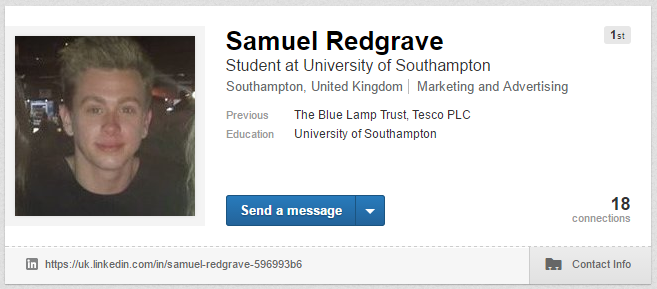
The Journey to Becoming SOTONSAM
I have always fancied myself as a bit of a “computer whiz”; I have been using a computer for as long as I can remember, and cannot remember a day in the past 6 or so years in which I haven’t used/checked/perused at least one form of social media. However, until taking this module, I did not fully appreciate how the complex phenomenon of the Web is so much more than just tweets, Facebook statuses and Instagram posts.
Continue reading →










